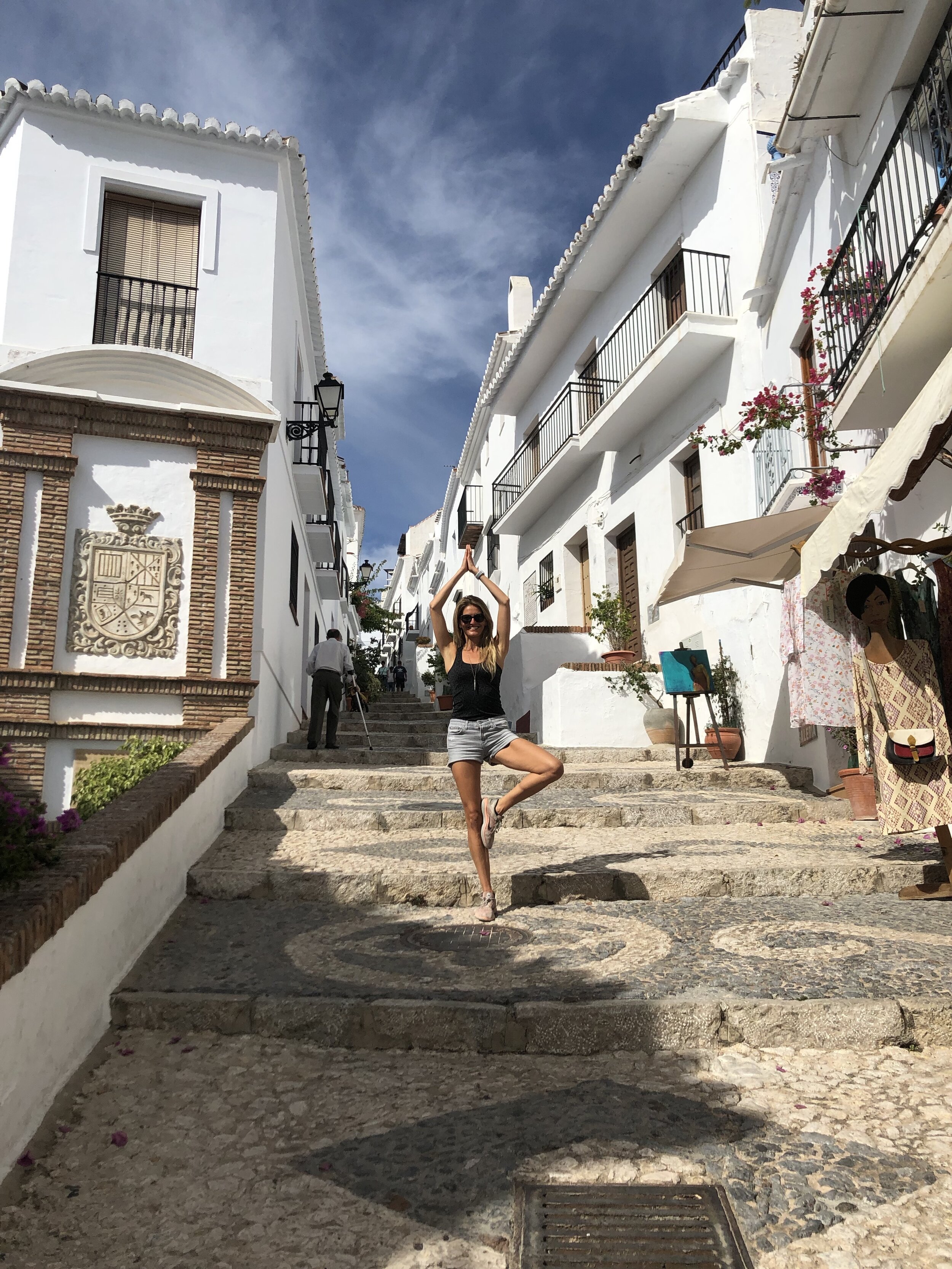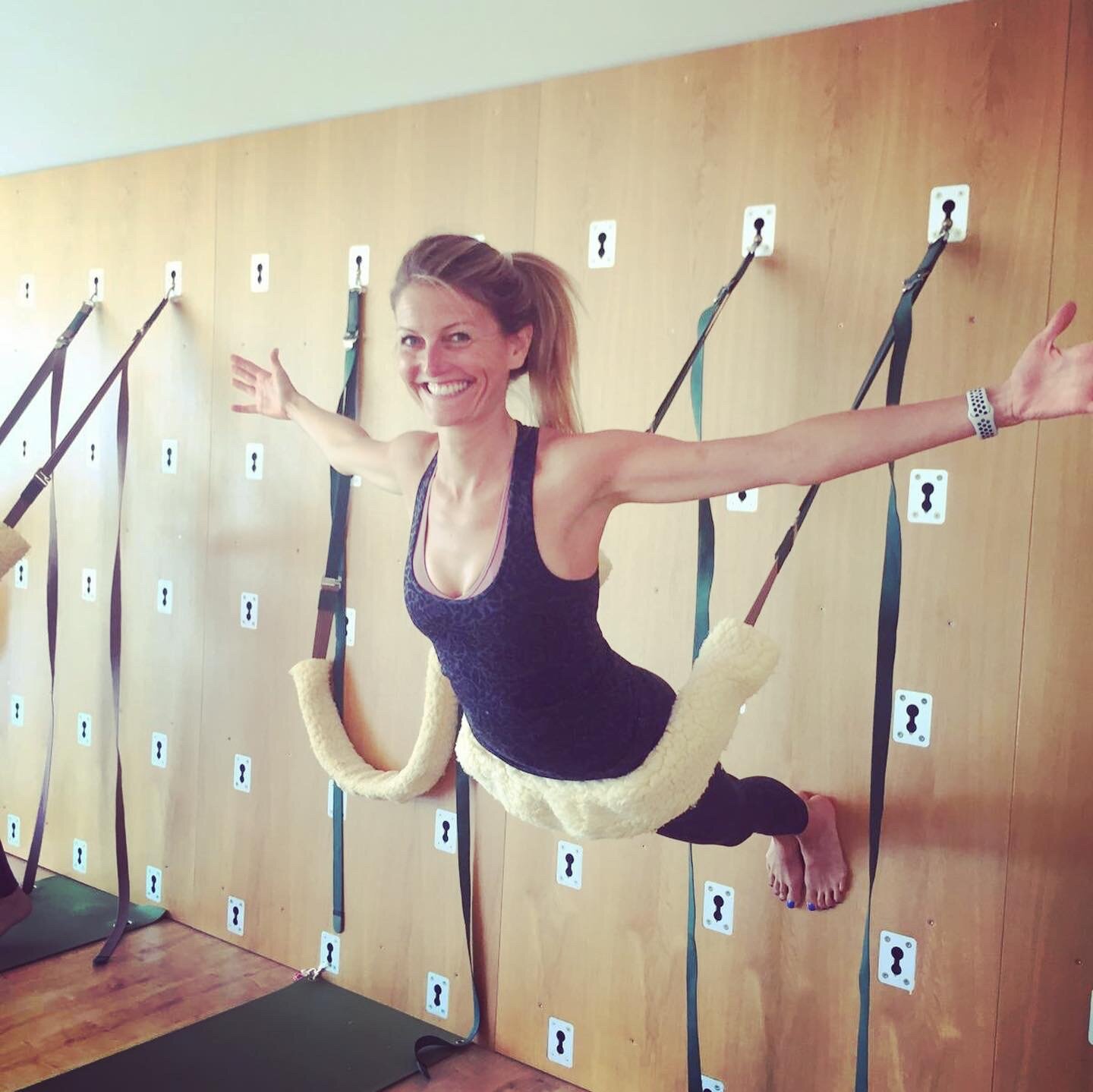
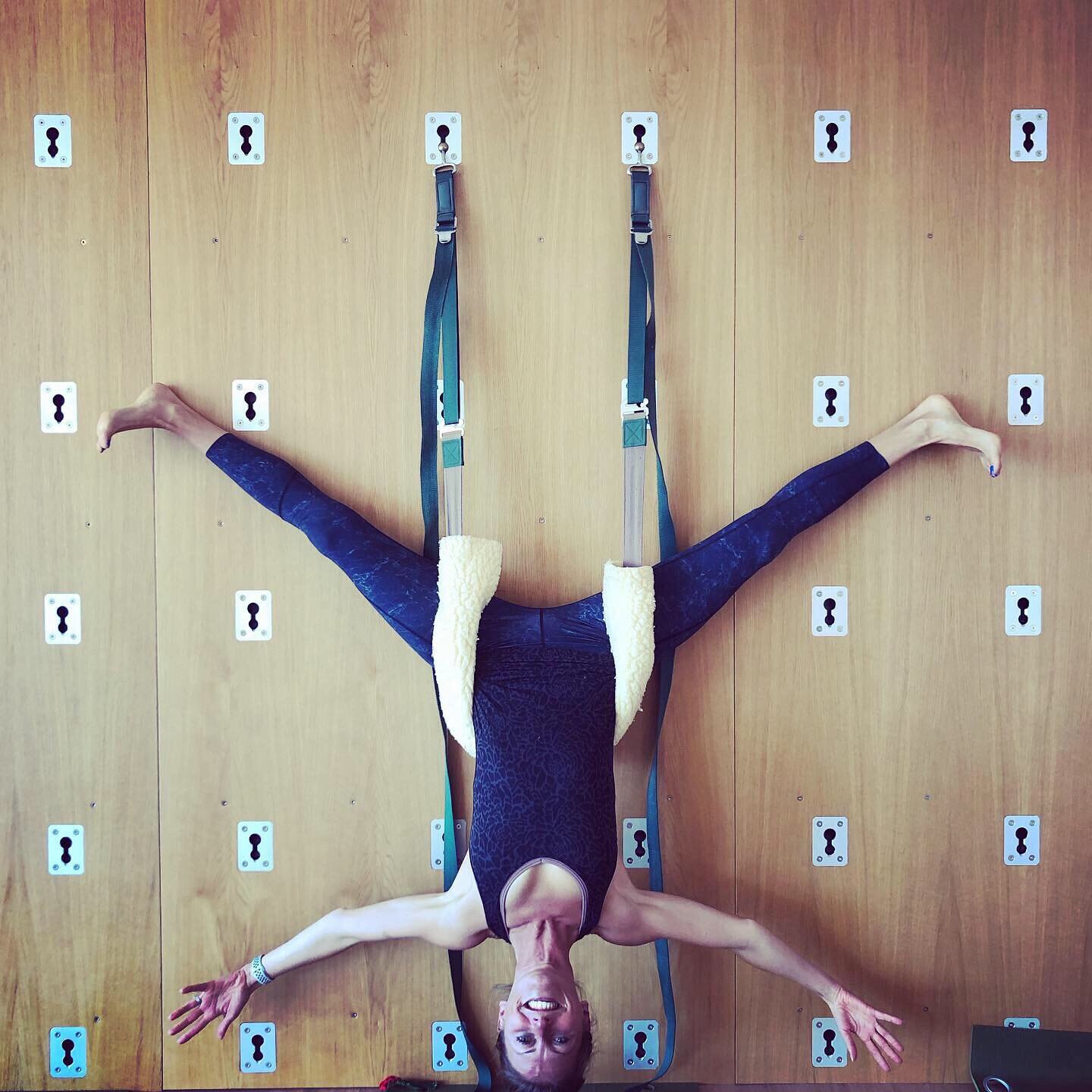
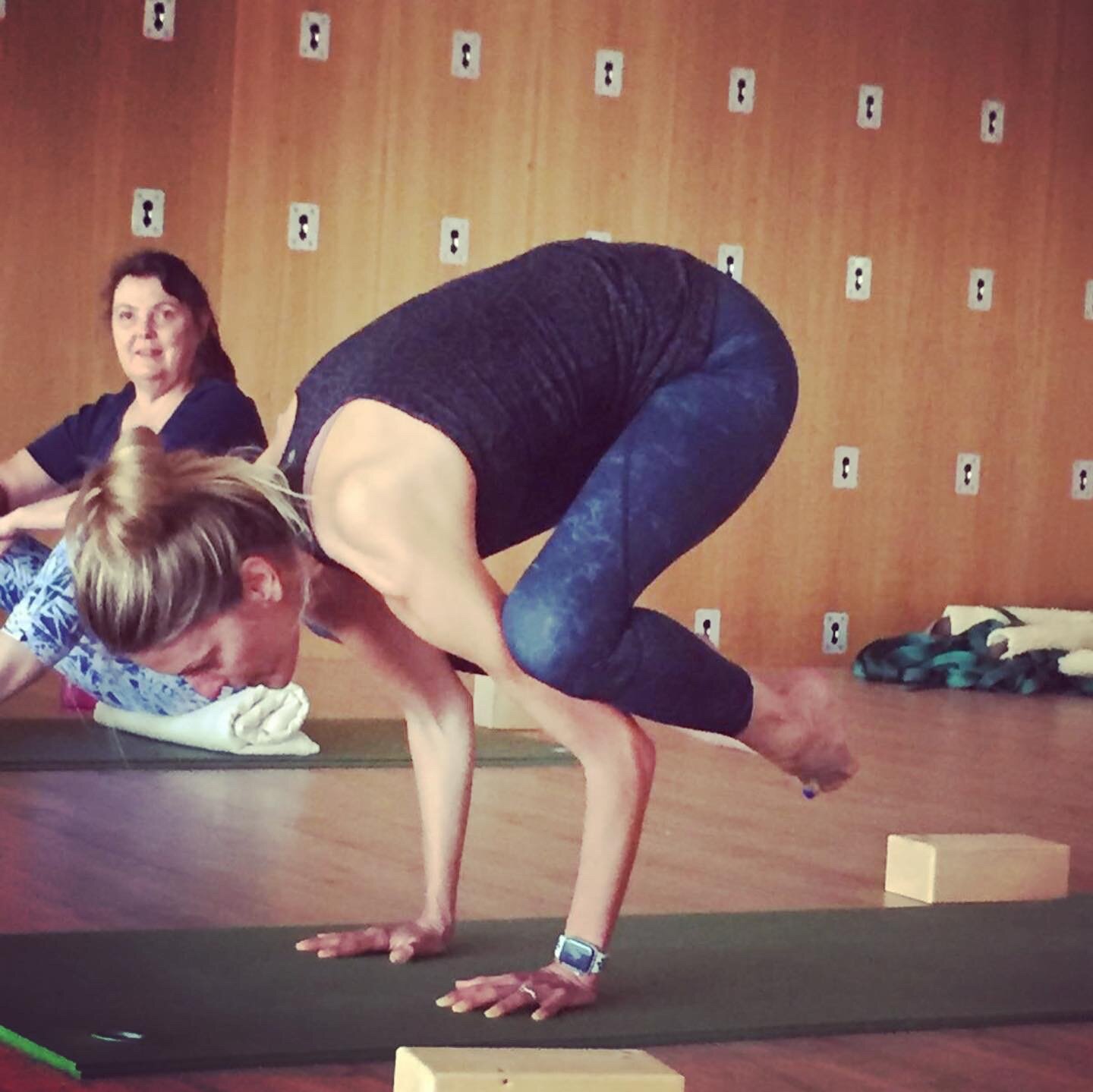
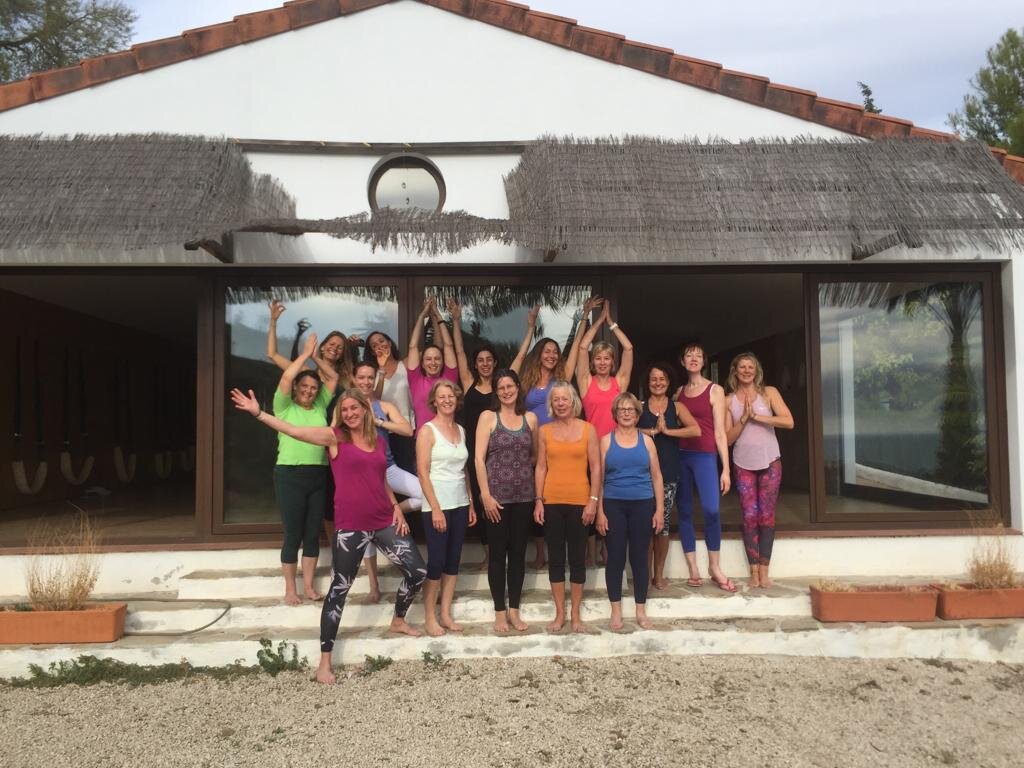
Taking time out
I’ve just come back from a teachers’ Pilates, Yoga and meditation retreat in Spain which has really highlighted to me more than ever the importance of “me time” and the impact stress has on the body and mind.
Before the retreat I was struggling to switch off, had issues sleeping, experienced heart palpitations and anxiety (caffeine consummation particularly aggravated these). I was admittedly overworking, overexercising and struggling to relax or sleep as a result. Combining working as a Pilates teacher with a nutrition course, which although it has been very enlightening, has massively reduced my free time and increased the guilt factor when I’m not studying.
A week away relaxing, catching up on sleep, meditating, doing gentle Yoga and Pilates and slowing down was just what I needed. This was further aided by the stunning Andalucian landscape and trips to beautiful white washed pueblos in our free time. It helped me return feeling very refreshed. Organised discussions on our personal care and professional development has also given me perspective on my stress levels before I arrived.
The Stress epidemic
Now more than ever, stress is epidemic, in London particularly due to the faster pace of life, longer working hours and greater work pressures. That’s not to say you can’t feel stressed outside of London.
Dr Rajan Chatterjee, of whom I am a massive personal advocate, echoes this sentiment in his book “The Stress Solution” which is a very worthwhile read. It emphasises the importance of simple things like breathing, walking in nature, emotional support and the importance of touch. He also has a fantastic podcast which is worth listening to called “Feel better, live more”.
Self-care tips at home
Of course, you don’t need to get away for a full week to manage your stress levels. Nourishing “you” time and self-care is just as important, if not more so, after a relaxing break as it can feel even more stressful getting back to a huge workload after a holiday as well as the stresses and strains of home life.
What you put into your body can also have a huge impact on your stress response such as your diet, alcohol and caffeine intake.
This is one of the reasons I am studying a nutrition course at the moment. Nutrition can help with stress management as well as with your energy levels, weight loss and sports performance and generally feeling happier and healthier in yourself. It is also essential during pregnancy and in the post-natal period to help your body recover, particularly if you are breastfeeding.
Education is the first important step to making meaningful changes to your life. The second is having the motivation and support to implement them. I hope to assist my clients with these once I qualify as a MNU Nutritionist with Mac Nutrition Uni in October / November 2020.
Meditation can also be very helpful at managing stress. This is something I practise daily and find particularly useful for managing stress, as are Yoga and Pilates for their focus on the breath and slow controlled mindful movements.
There are lots of different styles and teachers of Yoga and Pilates so it’s obviously important to find out what’s right for you.
For meditation I practise Vedic meditation. I trained with Will Williams (now Beeja Mediation). I have heard from friends London Mediation Centre in South Kensington is also very good if this is something you are interested in trying out. If you are new to meditation and find the idea of joining a course too daunting initially or too alternative, you could start with an accessible app such as Headspace or Calm. These are what in fact kicked off my meditation journey and I still use now. They are simple to use and download and you can easily incorporate them into your daily routine with as little as 5-10 minutes of time out to breathe and body scanning to relax and disconnect from the outside world. Vedic meditation in comparison has to be before or at least 2 hours after food, caffeine and takes longer - 25-35 minutes. It will however send you into a much deeper level of relaxation by mentally chanting your own private mantra.
Another tip is to find activities which spark joy in your life (Marie Kondo style) where you find your flow and lose track of time you are so immersed (including anything bothering you).
If you have any questions about anything above I have mentioned, or would like further tips, please get in touch. I am passionate about physical and mental wellbeing so would be happy to help.
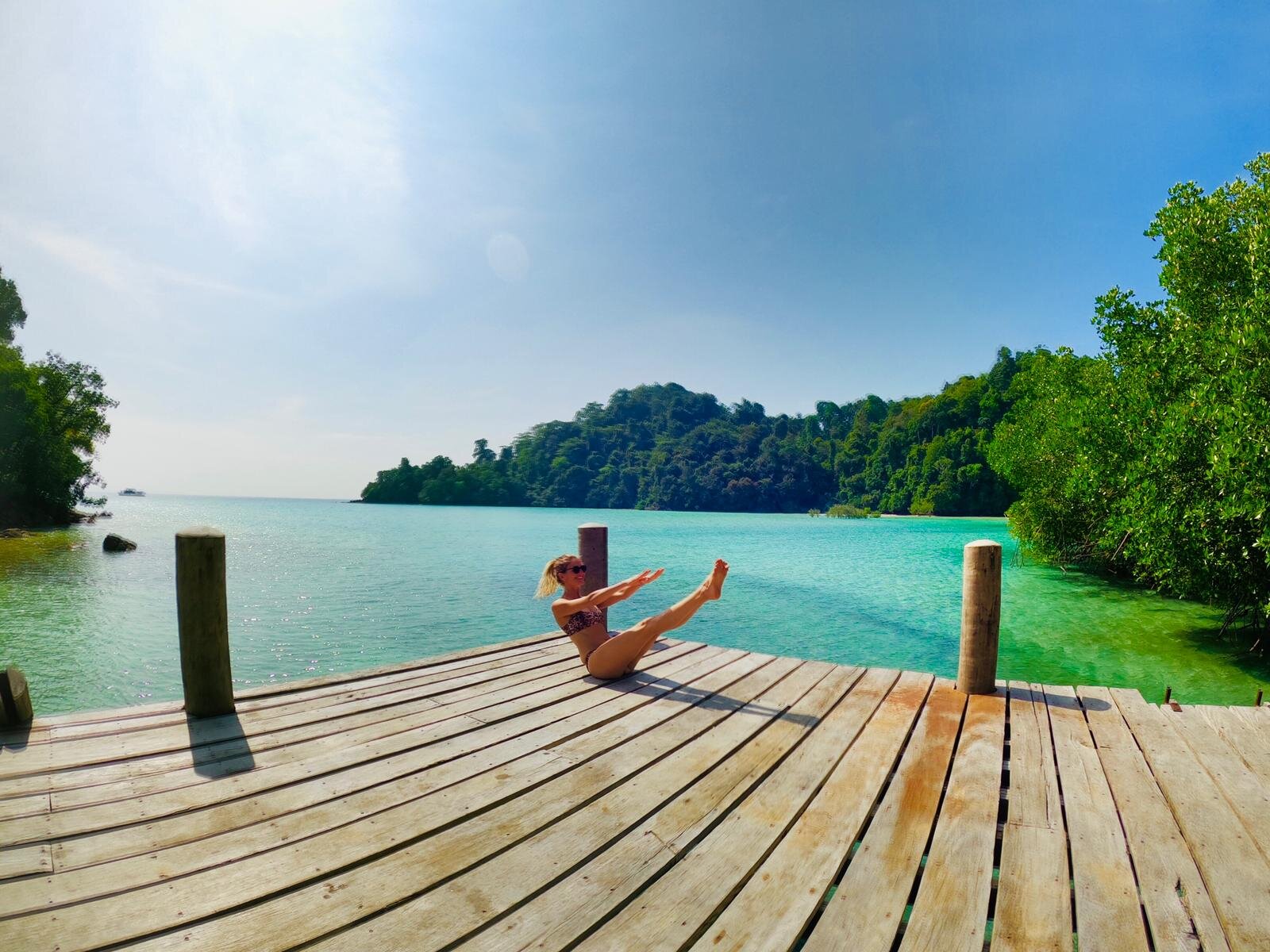

The impact of stress on hypermobility
Since becoming a Pilates teacher I’ve learnt a lot about hypermobilty spectrum disorder through reading, working with hypermobility specialists and undertaking lots of background reading in this area.
Previously, I hadn’t realised that having Hypermobilty Spectrum Disorder (formerly Hypermobilty Syndrome) didn’t just mean having joint mobility past your normal range, although it does if your hypermobility is only limited to your joints.
Hypermobilty Spectrum Disorder is a soft tissue disorder which affects your whole internal system. Below are some of the areas it can affect which you may not be aware of. Finding this out helped to give me piece of mind and understand that these issues are just part and parcel of the condition. It has also helped my clients who fall within the spectrum to understand the same and subsequently find ways of managing the condition.
Here is a list of areas hypermobility can affect (but not necessarily all may be applicable for each individual):
Joint pain and clicking joints
Flat feet, fallen arches
Prone to injury
Stretchy skin, bruise easily, dental overcrowding and receding gums
Gastrointestinal issues
Prone to anxiety, exhaustion, dizziness (including Postural Orthostatic Tachycardia), brain fog
Insomnia / sleeping issues
Pelvic floor and bladder weakness
During pregnancy - pelvic girdle pain and epidural may not be effective (ensure you are under the care of medical professionals who understand hyper mobility)
Etc…
This book by Claire Smith is a very interesting, comprehensive read on Hypermobilty and Ehlers Danos Syndrome if you are interested in finding out more.
I would also recommend looking at your diet if you do struggle with gastrointestinal issues, energy levels and anxiety, pace yourself and focus on gentle aerobic exercise and strength training to manage your stamina and tendency towards injuries and pain. For me, Vedic Meditation is an essential daily ingredient for helping with brain clarity, energy levels, anxiety and stress management.
It is also important to stay hydrated and ensure you have enough salt in your diet (ironic I know) to help avoid dizzy spells and exhaustion, particularly if you have POTS (Postural Orthostatic Tachycardia).
Pilates for hypermobility
Last but not least Pilates is fantastic for body awareness, gentle strength training and managing pain. It has particularly helped me and my many clients who are hypermobile to manage any symptoms experienced.
I would recommend starting with a 1:1 if you are new to Pilates or experience any chronic pain before joining my group classes. That way you can build up confidence with a bespoke class tailored to you. Everyone is unique. So private 1:1s can give you the opportunity to focus on what you need, learn more about yourself and go through exercises which would most benefit you. That’s the joy of mat Pilates - it’s so versatile you can do it anyway.
I mostly teach in the convenience and comfort of your home, but I also hire out a studio in Form Physio, Hammersmith if you would prefer. My group classes are around Hammersmith and Brook Green. I can also offer online 1:1 classes if that suits you best.
I look forward to hearing your thoughts.

